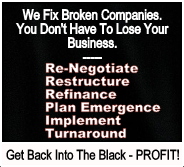Saturday, June 1, 2013
9 Steps To Riches: The Magical Mindset Of The World's Wealthiest And Most Powerful People
You should be visiting: The CFI Group Of Companies Website. There's a great deal for everyone's self-growth, professional success, achievement and happiness. BTW: Entrepreneurs and Project Sponsors for CrowdFunding are welcome!
Yes. There are certain mindsets, decision making characteristics and ingrained habits which make and keep the world's ultra wealthy...well...ultra-wealthy. In the aggregate, if you review all of these things, memorize them very well, and make them a conscious part of your personal, "Magical Mindset," odds are in your favor that you will make better lifestyle, business, investment and general management choices. In my blogs, Douglas E. Castle and The Taking Command Blog, I allude to these frequently.
Every businessperson, entrepreneur, Diva-In-The-Making, manager, commander, Project Sponsor [http://GoToCFI.com] and ambitious boot-strapper or future tycoon needs to read and memorize these critical strategic ways of thinking. The outline, taken from brief articles drawn from Forbes, INC. and CEO magazine follows, with brief explanations of each item (in fact, a voice recorded recital of all of these items follows at the end of this article which you can listen to over and over to reaffirm these points to your subconscious!):
If you want to get an edge and separate yourself from the common herd, take some cues from the seven beliefs and habits of the most successful people:
1. An equity position is necessary to get wealthy.
Ninety percent of the super-successful say this is true, versus fewer than half of the masses. More importantly, 80 percent of "business brilliant" people say they already have an equity stake in their work. Just 10 percent of the middle-class have an equity position of any kind, and the vast majority (70 percent) say they're not even trying to get one.
2. I'm always looking to gain an advantage in my business dealings.
About 90 percent of "business brilliant" individuals say they are always trying to grab an edge, compared with just about 40 percent of the middle-class. Gaining even small advantages in a series of deals can have a cumulative effect on your wealth, but since most people aren't even looking for one, they're that much more likely to end up on the disadvantaged side of every deal.
3. Doing things well is more important than doing new things.
Getting wealthy usually means you've taken an ordinary idea and executed it exceptionally well. That's what 9 in 10 "business brilliant" people believe. Most other people, though, think that wealth requires a big, new idea. Unfortunately for them, big ideas are rare and risky. Too many people are waiting on the sidelines for the perfect big idea to come along, while the most successful people have jumped in the game, and busily honed their skills at execution.
4. I hire people who are smarter than I am.
Exceptional execution requires those who are business brilliant to focus on the two or three things they do very well. So they get their work done by building teams with complementary capabilities. Surveys show that most people, though, would rather learn to do tasks they're bad at than get others to do them. The business brilliant know that you get to the top because of your strengths, not your weaknesses.
5. It's essential I really understand my business associates' motivations.
If you're dependent on other talented employees, you'd best know what makes those talented people tick. That's the belief of about seven in 10 people in my "business brilliant" cohort, compared with fewer than 20 percent of the middle-class. My survey suggests that your willingness and desire to really get to know and understand your business associates is a sure marker of success--and one that most people don't have.
6. I can easily walk away from a deal if it's not right.
The "business brilliant" know that bad deals, like bad marriages, can be painful--and costly. So if the deal on the table isn't right, 71 percent say they have no problem cutting bait and moving on. Only about 22 percent of the middle-class say the same. Most people are willing to take their chances on deals that don't seem right from the start, even though it's less risky to walk away.
7. Setbacks and failures have taught me what I'm good at.
Those who are "business brilliant" have, on average, more failures than members of the middle-class. But they use those failures to help them succeed on the next attempt. Just 17 percent of the middle-class say they learn from their failures in this way, which is really a shame. Everything worth trying contains an element of risk, after all. If you fall on your face, you might as well learn from the experience to help you succeed on your next try.
8. I'll recite these words and take these actions every single day:
"Here's what I'm thinking."
You're in charge, but that doesn't mean you're smarter, savvier, or more insightful than everyone else. Back up your statements and decisions. Give reasons. Justify with logic, not with position or authority.
"I was wrong."
I once came up with what I thought was an awesome plan to improve overall productivity by moving a crew to a different shift on an open production line. The inconvenience to the crew was considerable, but the payoff seemed worth it. On paper, it was perfect.
In practice, it wasn't.
"That was awesome."
No one gets enough praise. No one. Pick someone--pick anyone--who does or did something well and say, "Wow, that was great how you..."
And feel free to go back in time. Saying "Earlier, I was thinking about how you handled that employee issue last month..." can make just as positive an impact today as it would have then. (It could even make a bigger impact, because it shows you still remember what happened last month, and you still think about it.)
Praise is a gift that costs the giver nothing but is priceless to the recipient.
"You're welcome."
Think about a time you gave a gift and the recipient seemed uncomfortable or awkward. Their reaction took away a little of the fun for you, right?
The same thing can happen when you are thanked or complimented or praised. Don't spoil the moment or the fun for the other person. The spotlight may make you feel uneasy or insecure, but all you have to do is make eye contact and say, "Thank you." Or make eye contact and say, "You're welcome. I was glad to do it."
"Can you help me?"
When you need help, regardless of the type of help you need or the person you need it from, just say, sincerely and humbly, "Can you help me?"
And in the process you'll show vulnerability, respect, and a willingness to listen--which, by the way, are all qualities of a great leader.
And are all qualities of a great friend.
"I'm sorry."
We all make mistakes, so we all have things we need to apologize for: words, actions, omissions, failing to step up, step in, show support...
Say you're sorry.
But never follow an apology with a disclaimer like "But I was really mad, because..." or "But I did think you were..." or any statement that in any way places even the smallest amount of blame back on the other person.
"Can you show me?"
Advice is temporary; knowledge is forever. Knowing what to do helps, but knowing how or why to do it means everything.
When you ask to be taught or shown, several things happen: You implicitly show you respect the person giving the advice; you show you trust his or her experience, skill, and insight; and you get to better assess the value of the advice.
"Let me give you a hand."
Many people see asking for help as a sign of weakness. So, many people hesitate to ask for help.
But everyone needs help.
Don't just say, "Is there anything I can help you with?" Most people will give you a version of the reflexive "No, I'm just looking" reply to sales clerks and say, "No, I'm all right."
Be specific. Find something you can help with. Say "I've got a few minutes. Can I help you finish that?"
"I love you."
No, not at work, but everywhere you mean it--and every time that you feel it.
Nothing.
Sometimes the best thing to say is nothing. If you're upset, frustrated, or angry, stay quiet. You may think venting will make you feel better, but it never does.
That's especially true where your employees are concerned. Results come and go, but feelings are forever. Criticize an employee in a group setting and it will seem like he eventually got over it, but inside, he or she never will.
---------------
9. I'll occasionally use these three words to give me instant credibility:
When it comes to credibility-building, the three most powerful words in the English language are: "I don't know."
Many salespeople and most managers think that they'll lose credibility if they admit ignorance, especially about something about which they "ought" to know. However, the exact opposite is the case.
-------------
If you enjoyed the article above, and want to truly program your conscious and subconsious minds to put these suggestions into beneficial action, listen to the recording which follows at least once every day, preferably around dinnertime, when you are alone and relaxed.
Thank you for reading me, and for retweeting (RT) and sharing my articles with your connections, colleagues and friends through your social media!
Here's a taped recital of all of these important points for your repeated listening, training and habituation (you will likely need an Apple Quicktime or similar player to get play this and to receive the maximum benefit, although when downloaded you may route it to your Windows Player, and other programs and devices). Your best option is to make this page a favorite, and review and replay as needed. Maximize the benefit by reading (visual) and by listening (aural, subliminal).
RECORDING [CLICK] OF "9 STEPS TO RICHES"
Again, thank you.
Douglas E. Castle
Sponsored By:
CFI - CrowdFunding Incubator LLC
ICS - International Connection Services
Global Edge Technologies Group LLC
CFI Business Growth
Douglas E. Castle On LinkedIn - Join Me!
CFI - CrowdFunding Incubator LLC
ICS - International Connection Services
Global Edge Technologies Group LLC
CFI Business Growth
Douglas E. Castle On LinkedIn - Join Me!
Share


***

![ICS [International Connection Services] provides small to medium-sized businesses with all of the resources and tools necessary to become involved in import, export, outsourcing, global marketing, and worldwide joint venturing -- its capabilities are comprehensive, flexible, scalable and very reasonably priced. Aside from addressing virtually every significant aspect of communications, credit, financing, qualifying overseas partners (as well as distributors and representatives), logistics, customs clearance, insurance, administration and documentation, ICS specializes in custom-creating virtual international trade divisions for companies which are new to international business, and wish to absolutely minimize their expenditure and exposure in making their first advances into going global. This virtual aspect of doing business eliminates the need for additional staffing, travel, and investment in fixed costs. ICS' programs allow you to travel the entire globe and enjoy its many opportunities without ever having to leave your office! - http://www.ICSInternationalConnectionServices.com - Affiliated With Global Edge Technologies Group LLC, CrowdFunding Incubator LLC and The Internationalist Page Blog.](https://blogger.googleusercontent.com/img/b/R29vZ2xl/AVvXsEiJuMVN90QgAGDRz7rcL5bcaJshLn_LA3RdqOY0KTOixoMc9XFMpyLVLrxvEYnFL2CLX-uc-VLua46tPDxrH4XaCMzWI89TVVXRuS4OgJSgUfJOWycxwAU21sqJmWC1iLSlmSa4xX_w/s320/ICS+Button+Link.jpg)








No comments:
Post a Comment
Note: Only a member of this blog may post a comment.